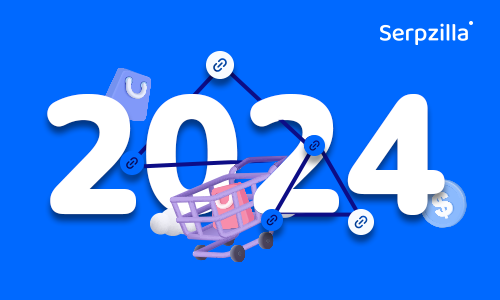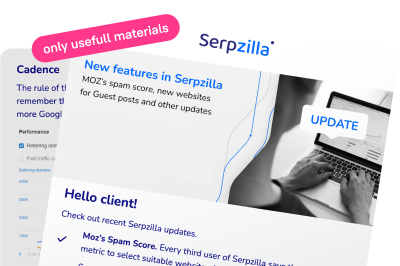Known for its algorithm updates, August 2022 saw one of the major upheavals by Google, which took the SEO world by storm.
Google announced the Helpful Content Update, aimed to help enhance the standards that are important for searchers. The same update closely resembled the Panda update (negatively impacting low-quality content that didn’t drive value for the users). The comparison between these algorithms was made in our SEO webinar “Make Your SEO Great Again”.
In this update, sites producing spam-like content with reduced value for the users would get penalized, affecting the overall website performance. According to Google’s Danny Sullivan, “our testing has found it will especially improve results related to online education, as well as arts and entertainment, shopping, and tech-related content.”
How Does Helpful Content Work?
Google processes 5.9 million searches every minute. Now how to ensure that the searchers get the most optimal content that is meant for their intent? This is where Helpful Content comes into the picture.
Let’s take a look at some of the most practical secrets of implementing Google’s Helpful Content System, leading to a win-win situation.
- Churn Content By Humans, For Humans – The first thing that Google wants to see in the content you provide is whether it’s serving the readers or not. The content should be rather made for humans and not meant for only attracting traffic from search engines.
- Be The Single Source Of Truth – Let your content not leave the readers feeling that they will need to research extensively again on the same topic or sub-topic, just to get better information from other sources. Make the content the single point of truth – wherein they can get all the information under one roof.
- Avoid Adding Fluff – Adding fluff to the content is a cardinal sin, although most of the writers have fallen prey to it. What this means is, using several words to explain a concept, which serves no purpose except for meeting the so-called Google’s preferred word count.
- Never Settle For Random Topics – Instead of writing on specific niches, when you produce content on several different topics, hoping that something will hit the search results bull’s eye is a complete no. What you need to do is build thought leadership in a particular area, say eCommerce, fashion, photography, and so on. This will get you more qualified traffic, and also help increase engagement and conversions.
- Don’t Use Excessive Automation – Content spinning has always been around, and now we have AI tools that help generate content at speed and scale. But are these tools helpful for producing content that’s high on quality across topics? The answer is no. Helpful content focuses on catering to quality and using tools that are only inexpensive means of generating content may prove to be detrimental.
- Do Some Value Add – When you are just reading 5-10 different articles or blogs, and creating a content that basically summarizes what others have to say without adding direct value to the readers, Google may assess that the content is not valuable for the readers. This may impact the overall website rankings.
- Stop Writing For The Heck OF It – Remember the ALS Ice Bucket Challenge, which took place a few years back? Such trending topics will always find people making a beeline for creating content on the go. The idea behind this is to think that maybe your website or content will gain traction and not to engage the existing audience.
- Show Real Expertise – Sometimes, you may decide to write on any niche topic but not have the real expertise in it. This plan may look great from afar, but it can backfire pretty soon. Follow Google’s EEAT guidelines and you’ll be sorted to create expert-level content that helps your website gain more traction.
- Never Overpromise And Underdeliver – Do you have content on your website, which promises to answer a question and yet, it provides any answer. Think of talking about a product, movie, or a new show’s release date that isn’t confirmed yet.
But what happens when you get penalized by Google’s Helpful Content Update?
Here’s a quick resolve:
- Step 1 – Remove any signs of duplicate, tentatively inspired, and low-quality content.
- Step 2 – Add your original insights from your own industry experience
- Step 3 – Have patience, and wait for the next update.
- Step 4 – Trying to evade Google is going to be a nightmarish experience. Don’t even try that and republish shitty content.
Checklist Of Creating Helpful Content For Google
- Are you a trusted source on the topic? Can you demonstrate firsthand knowledge on the topic you are writing about?
- Is your website establishing itself as the center for reliable information?
- How accurate, unbiased, and well-researched is your content?
- Does your content satisfy user needs?
- Does your content answer the searcher’s question or provide a solution to their problem?
- Does your content go beyond providing surface-level information to the users?
- How well is the content aligned with your website’s overall theme or purpose?
- If you’re in the users’ shoes, will you be visiting your own website to get all the relevant information?
- Is the content making you feel well-informed or yearning for more?
If most of the above answers are not affirmative, then you may want to revisit the content and remove it altogether if required.
Conclusion
Google’s Helpful Content Update aims to improve search results by rewarding content, which is actually useful and informative to the users. And if you’re to only focus on creating content for your website, make sure that it is written by humans and for humans. There is no promise but only thoroughly researched, quality content that adds value to the readers. By following these tips above, you’ll surely be able to generate quality content at scale, which will rank well in the SERPs.







